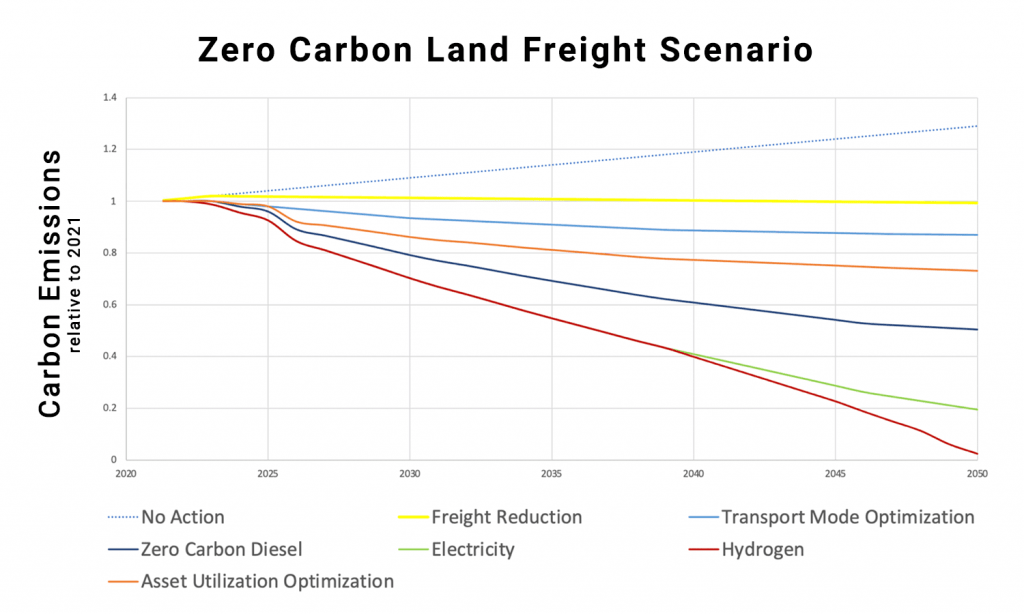Freight systems, encompassing freight transportation and logistics, are one of the most challenging systems to decarbonize. All of the main decarbonization approaches for freight are seen as years away.
Achieving net-zero requires a combination of approaches, as illustrated by the accompanying diagram . In a business-as-usual approach, freight greenhouse gas (GHG) emissions are expected to increase. However, combinations of efficiency throughout the freight system and low carbon fuels can substantially reduce emissions.

Our Mission
The Net Zero Freight Systems Program is developing the solution pathways for a resilient freight system with zero greenhouse gas emissions, lower environmental impacts, and greater societal benefit than today’s system. The initiative is working to:
- Reduce freight system emissions by simultaneously addressing fuels, vehicles, and the design of effective material movement systems.
- Combine teaching and research with industrial, government, and civil society engagement to identify and amplify priority improvement opportunities. We provide vision, pathways, options, and analysis to decision makers and the public, and we track progress over time.
In the News
Researchers Help Maritime Industry Navigate Toward Sustainability – Across Georgia Tech, researchers are working toward a sustainable future for ocean shipping. Valerie Thomas is scholar of energy systems, sustainability, assessment, and low-carbon transportation fuels, and her work touches many aspects of the maritime industry. Patricia Stathatou, a researcher at Georgia Tech’s Renewable Bioproducts Institute, specializes in sustainability assessment of chemical engineering processes and products.

